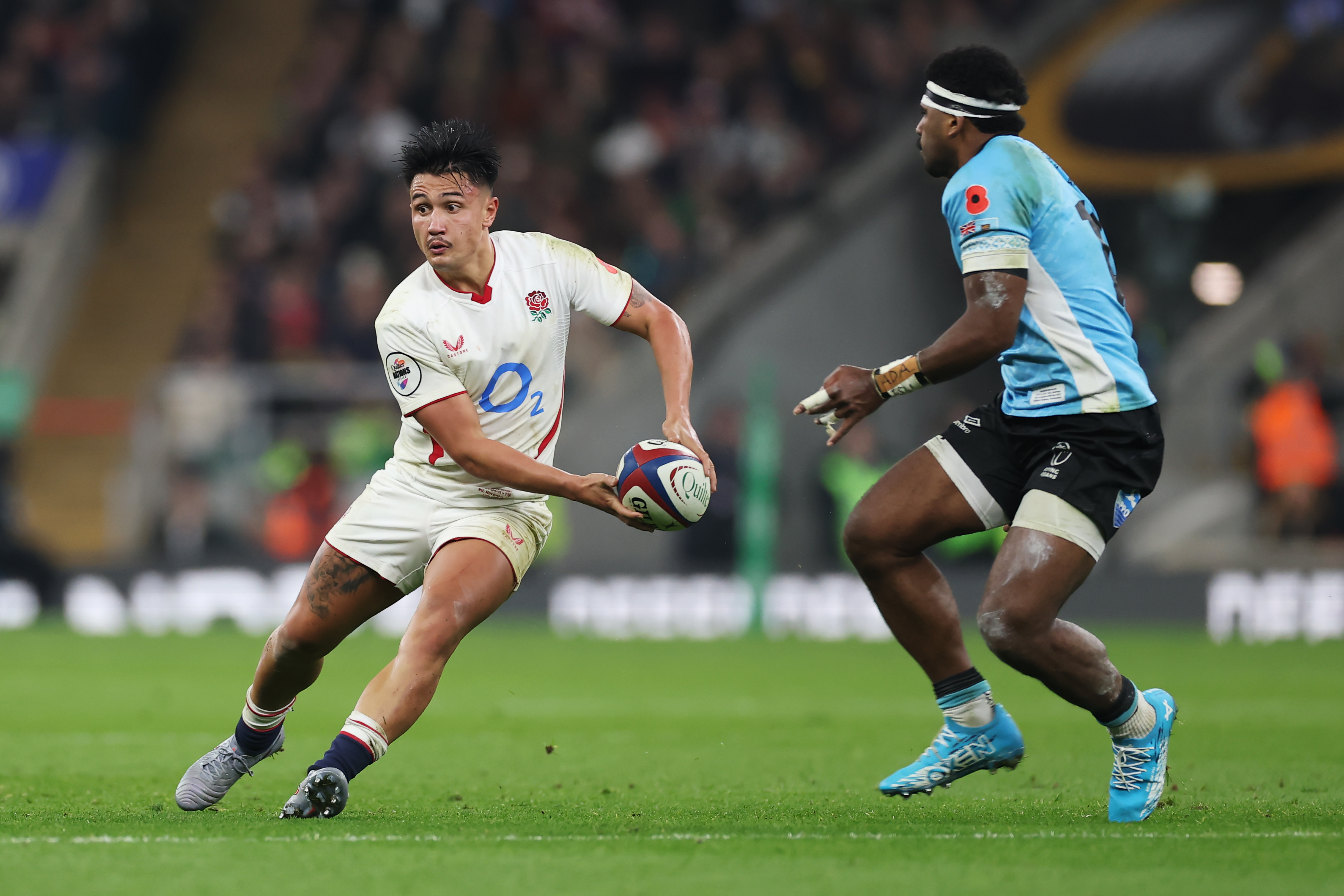The theme of this week’s column? The Smiths at Twickenham. Two fly halves, one in his usual position, one selected as a full back, and both keen to make their mark ahead of selection for the All Blacks’ visit to London.
It was going to require some show to take centre stage, even before the first ball was kicked. Two tens in tandem? New Zealand had already nailed the very concept against Scotland. On came Damian McKenzie from off the bench, one of the most dazzling fly halves in the world. He’s also a classy full back. At ten was Beauden Barrett, the legendary All Black fly half.
So it was 17-17 with the clock ticking. Barrett threw a pass back to McKenzie, who drilled a perfect 50-metre 50:22 kick. The two had combined to give their side the territory they would not relinquish until a long pass from Barrett was finished with balletic brilliance by the replacement. Fly halves, full backs? Seismic talents with an ability to turn a game that seemed to be inexorably going the way of Scotland.
Now Fiji, fabulous as they are, are not the All Blacks, but the collaboration of the two English tens was a potential yardstick for what happens when a side loads itself with footballers whose skills are united.

Fin Smith was supposed to fit together with Marcus Smith and maintain England’s momentum … but it wasn’t a success
GETTY IMAGES
George Ford is England’s first-choice ten, but this was an opportunity for the Smiths to express a more visionary, more varied style of play. Fin and Marcus are not in opposition for the role of Ford’s back-up. Their job was to fit together and maintain England’s momentum on the scoreboard and on the pitch. It cannot be described, alas, as a success.
Two tens turned the game for Scott Robertson’s All Blacks. At the very least the Smiths needed to turn Steve Borthwick’s head, preferably as a complementary attacking force. They could not have had a sweeter start to the game. Fin found Marcus, who took the hit and offloaded accurately. England swept back, right to left, and this time Marcus ran a straight, late line to test Fiji’s defence. In those opening minutes it was all very positive against a team who tackle like tanks and thrive on loose ball.
In the 13th minute the duo again cropped up next to each other; Smith M was taking the hits, but making space for others. Seven minutes later, Bristol’s dynamic Kalaveti Ravouvou was stopped — I wouldn’t say technically tackled — by the brave England 15. However, it was the third ten, the Fijian one, Caleb Muntz, who created space with a miss pass and finished the move himself with the touchdown to give Fiji the lead.
As for the Smiths, they were, individually, more good than bad; neither was guilty of any botches, but whilst the two operated in tandem in the latter stages of the first half, there seemed something missing in the chemistry. All the plays looked preordained. That’s not how you get the best from England’s version of McKenzie. It took a Fin Smith crossfield kick for an Immanuel Feyi-Waboso try, which the fly half converted, to add something tangible to a solid, if unspectacular, collaboration.

Marcus Smith took plenty of hits and made space for others but his chemistry with Fin Smith was lacking
GETTY IMAGES
Moments of magic like the McKenzie try in Edinburgh don’t just occur, you have to inject life into the game. In the first half the Smiths were technically adequate, but lacking in inspiration. The same could have been said for the home team. Maybe, against Fiji, England didn’t want to let the game loosen up. Not too early anyway. There’s Pacific Island poetry in those giant hands of theirs. “Keep it tight” was a mantra even when I was playing against Fiji … and that was back in 1988.
When England turned Fiji over early in the second half, the ball ricocheted here and there, but Smith M was conspicuous by his absence, as if he didn’t want to reveal himself. He finally popped up at ten with Fin on his outside, but it was pure training-ground stuff.
In the 47th minute the fly half was flattened as he drifted across field to kick — it was indicative of England’s stodgy structure. Ironically, they discovered their counterattacking selves from a Fijian kick, Ellis Genge finishing off a lovely attack with a try the mesmeric Islanders themselves would have been pleased to have scored.
Fiji then scored from a five-metre lineout; a move that would have pleased England’s packs through the ages. It was a topsy-turvy affair, with the two tens as disappointingly conservative as England’s game dictated. We have grown to expect something different from men like Henry Pollock. Smith M seemed to have lost the diamonds on the souls of his shoes.
It is his capacity to come up with the McKenzie magic that makes him valuable to Borthwick. Yet the way he played against Fiji added nothing. It wasn’t a matter of missed tackles or fumbled kicks under pressure. It was the sheer nothingness of his game, until Fiji fluffed a crosskick and, with one swing of his boot, he sent Henry Arundell away for a try with his first touch of the ball.
There was a time when the ball had an uncanny habit of dropping like that for Smith. This late moment was the exception — not exceptional — to the rule. Two Kiwis changed the course of a Test match in Edinburgh, but two English tens played by numbers when so much more was hoped for.

